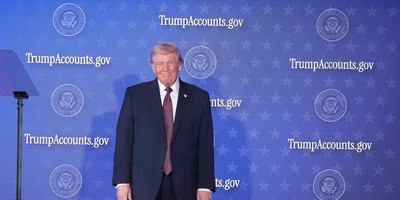While many people, including our leaders in Washington, seem to think fixing problems is relatively simple based on what they see on TV, it’s usually far more difficult than it sounds.
Plan Colombia comes to mind. Decades ago, we budgeted and spent over $7 billion to help Colombia violently wipe out Colombian drug cartels and support honest local governments. Problem Solved!
Actually, not. It just shifted northward, and we got Mexican cartels instead. Cartels that are supersized, more heavily armed, and right on our border. Cartels not just dominate their own government but also engage in international drug cooperation with China, thus increasing their strength and wealth. After Pablo Escobar was gone, along came Joaquín “Chapo” Guzmán - and then his sons. Problem not solved.
Then there is the current debate over export restrictions for semiconductors, chips, and the AI race heating up between America and China. “Solving” one problem will tend to create others.
By 2022, China had made sufficient strides in AI development to begin to rival American dominance. With that, Congress and the Biden administration thought it was a good idea to place export restrictions on this technology to slam the brakes and slow them down. It seemed like a common-sense solution at the time, which made for great soundbites on TV -- from both Democrats and Republicans. Problem solved!
Recommended
Some leaders think this was enough, and others appear simply confused.
For instance, a recent deep dive into the issue published this month by the Wall Street Journal entitled, “America’s chip restrictions are biting in China,” describing at length the opposite impact where Chinese companies are thriving as American market dominance is dwindling. The headline should have read, “America’s chip restrictions are biting in America.” There, I fixed it for them.
Regrettably, these restrictions haven’t slowed China down; they’ve just re-routed it along a different, accelerated path. China has since been using the power of the state to heavily invest in its own domestic industry, all while eventually banning purchases from U.S. competitors. Problem not solved.
It’s punched a golden ticket for Chinese giant companies like Huawei and SMIC, which are the key players in China’s drive to triple AI chip output by 2026. Meanwhile, our restrictions handicapped U.S. companies struggling in a $50 billion market. Problem really not solved.
Now it would be one thing if China’s tech industry were far behind America’s and the restrictions would meaningfully retard Chinese progress. However, and sadly for us, that’s no longer the case. Eric Schmidt, the former CEO of Google, authored a guest essay in the New York Times earlier this year entitled “DeepSeek. Temu. TikTok. China Tech is Starting to Pull Ahead.”Sounds about right.
What do people think 600,000 Chinese students in American universities are studying anyway? So, unless we want to kick all of the students out, these broad-brush export restrictions seem counterproductive.
In addition to China’s business-centric reaction to export controls by hyper-charging its own domestic capabilities, it’s also awakened a darker side of aggression.
An Axios story this month entitled, “Chinese hackers used Anthropic’s AI agent to automate spying,” drives that point home. Anthropic, an American company based in San Francisco, is claiming that “suspected Chinese state-sponsored hackers” have meddled with its AI assistant dubbed “Claude” in order to “target 30 global organizations – and had success in several cases.”
According to Axios, “this is the first documented case of a foreign government using AI to fully automate a cyber operation, Anthropic warned.” Alarm bells should be going off in Washington. But imagine a future where this same technology is built on their own equally powerful AI chips -- our restrictions are incentivizing them to build their own robust infrastructure to perform even more aggressive actions.
Dealing with China’s rise is not an easy problem to fix. Its ruthless Communist Party has maintained an iron grip on power since the 1940s, and has effectively merged the state with corporations. China clearly sees America as an impediment to global AI dominance, let alone its regional power.
President Trump and Congress should keep export controls in the tool belt to protect American interests, particularly with the most advanced technology; however, they must be smarter about using that tool than the previous administration was.
Getting tough with China only to see them go around us anyway is infuriating. We should not clip the wings of American companies only to witness Chinese ones soaring past. Let’s not gift China a win in the AI race.
Editor’s Note: Thanks to President Trump and his administration’s bold leadership, we are respected on the world stage, and our enemies are being put on notice.
Help us continue to report on the administration’s peace through strength foreign policy and its successes. Join Townhall VIP and use promo code FIGHT to get 60% off your VIP membership.

























Join the conversation as a VIP Member